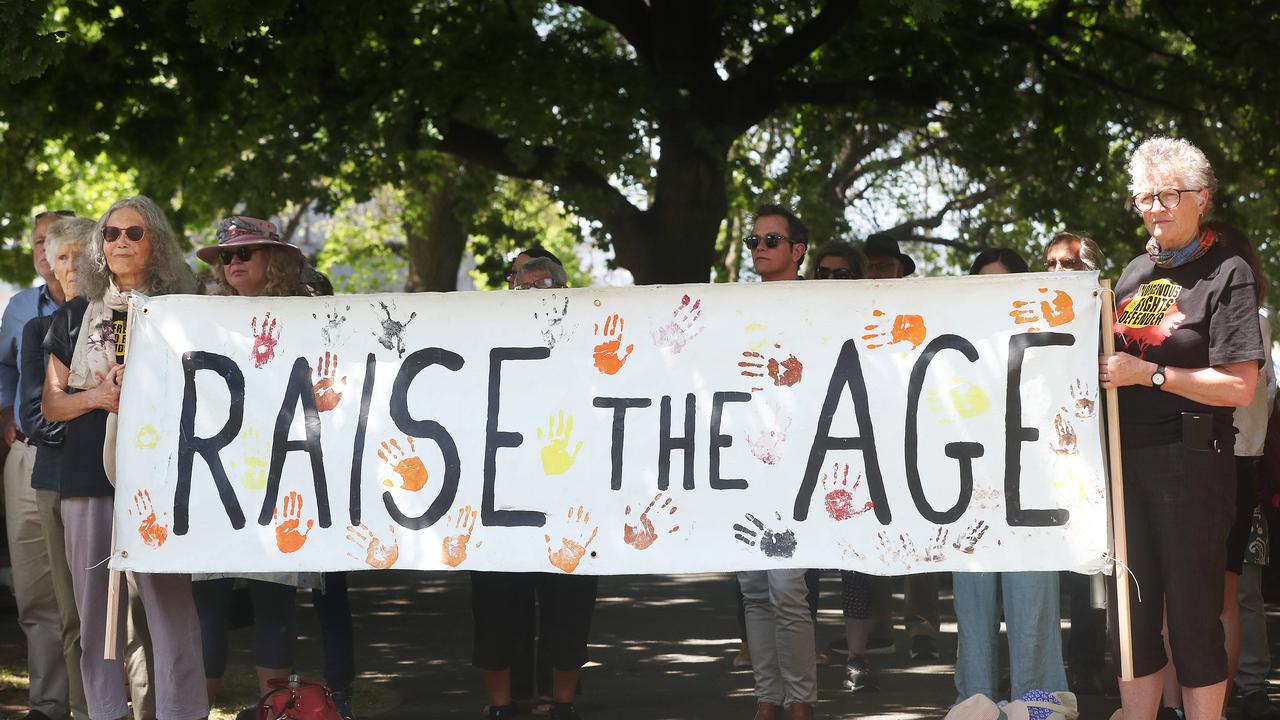Burnie mayor Teeny Brumby says placing children in jail is not the answer
A Burnie councillor’s push for the council to stand against raising the age of criminal responsibility did not have the support of his colleagues. Their discussion in the chamber.

The Burnie City Council will not lobby the state government to keep the age of criminal responsibility at the age of ten, a suggestion which was made by a councillor concerned about a potential rise in youth crime.
Steve Kons moved a motion on Tuesday that the council did not support the push to raise the age to 14.
“Young people at the age of ten are more aware of their rights than they ever have been, they know people can’t talk to them or touch them and they behave in a manner which is inappropriate to their community,” Mr Kons said at Tuesday night’s meeting.
“I feel sorry for police that have to patrol the streets and deal with this issue.”
Mr Kons said he would support raising the age, if the state government provided the better resources for services.
“The issue here is we’ve heard too much talk from the government about talking to youth, discussing with youth, talking about providing alternative services, I’m not seeing that,” Mr Kons said.
“Alternatives have to be provided before the legislation is changed.
“These place based alternatives they talk about haven’t been worked out in my belief as well as they could be.”
Burnie councillor Amina Keygan said the data did not support that there had been an increase in youth offending.
“In the past decade, youth offences has been trending downwards,” she said.
“The data is clear, children who become more involved with the youth justice system before age 14 are significantly more like to become adult offenders.”

Burnie mayor Teeny Brumby said she was not convinced it was the right response to form that position.
“We really need to look at an evidence based approach,” Ms Brumby said.
“We know there are times when police will have to intervene for the safety of our community and of the young person, but placing children in jail is not the answer.”

Mr Kons’ motion was changed to remove the reference to not supporting increasing the age.
The motion, which passed, was instead to simply write to the state government to review the Criminal Code, Police Offences Act and the Youth Justice Act.
Steve Kons’ push would worsen youth crime, Legal services say
August 22
Two Tasmanian legal groups say a Burnie councillor’s push to oppose raising the age of criminal responsibility will only lead worse outcomes for young people.
Burnie councillor Steve Kons plans to move a motion on Tuesday to lobby the state government to keep the age of criminal responsibility at 10, amid calls for it to be raised to 14.
Tasmania’s commissioner for children and young people is among those who have recommended the age be raised to at least 14.

In his rationale for the motion, Mr Kons said Burnie had a growing youth crime problem
“In recent times there has been an increase of offences by people under the age of 18 in the
Burnie Municipality,” he said.

“ … Those under the ages of 18 have a careless disregard for the law when they are aware that action against them is limited and provided them with the ability to undertake unacceptable behaviour with limited repercussions against them.”
The Tasmanian Aboriginal Legal Service (TALS) and Legal Aid Tasmania (TLA) have said keeping the age as is would only make things worse.
“We urge Councillor Kons to be part of the solution and not further aggravate the problem. The Burnie City Council should be looking at investing in programs and developments to support young people, their families, and communities.” TALS acting state manager Hannah Phillips said.
“Having children trapped in the criminal justice system is not going to lead to better outcomes for young people and better outcomes for the community. Young people often act out because their basic needs are not being met.
“The focus must be on what supports can be wrapped around a young person to reduce the risk, not locking them up so that they are off the street for a brief period in a traumatic environment which ultimately makes them worse.”
TLA director Kristen Wylie said early intervention was the solution to youth crime.
“You cannot pump funding into one side of the system and think it will stop crime,” Ms Wylie said.
“Crime will stop when there is genuine commitment to early intervention, prevention, rehabilitation and therapeutic responses to offending.
“There is a complete absence of programs addressing risk and offending behaviour. There are no programs for youth to be diverted to. This is a real issue.”





